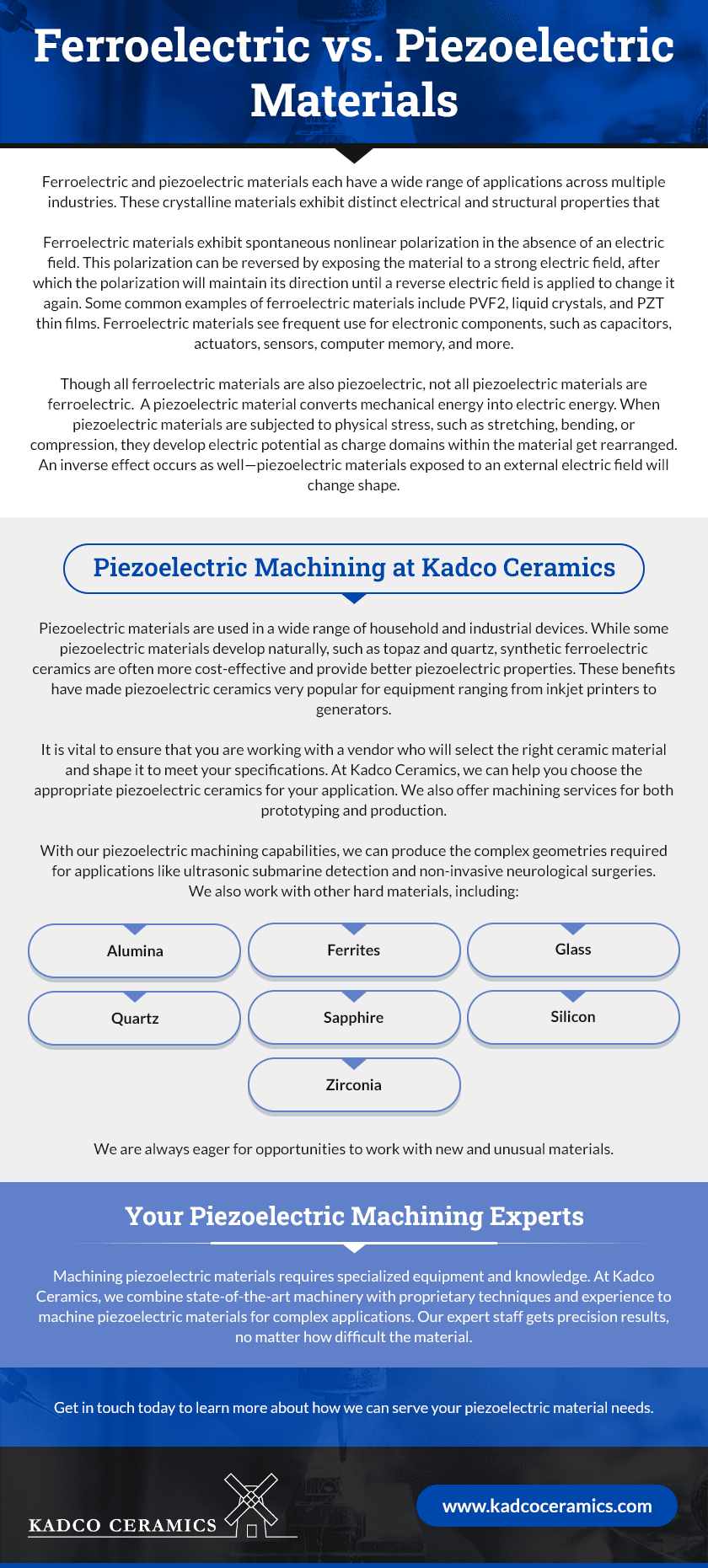Ferroelectric and piezoelectric materials each have a wide range of applications across multiple industries. These crystalline materials exhibit distinct electrical and structural properties that
Ferroelectric materials exhibit spontaneous nonlinear polarization in the absence of an electric field. This polarization can be reversed by exposing the material to a strong electric field, after which the polarization will maintain its direction until a reverse electric field is applied to change it again. Some common examples of ferroelectric materials include PVF2, liquid crystals, and PZT thin films. Ferroelectric materials see frequent use for electronic components, such as capacitors, actuators, sensors, computer memory, and more.
Though all ferroelectric materials are also piezoelectric, not all piezoelectric materials are ferroelectric. A piezoelectric material converts mechanical energy into electric energy. When piezoelectric materials are subjected to physical stress, such as stretching, bending, or compression, they develop electric potential as charge domains within the material get rearranged. An inverse effect occurs as well—piezoelectric materials exposed to an external electric field will change shape.
Piezoelectric Machining at Kadco Ceramics
Piezoelectric materials are used in a wide range of household and industrial devices. While some piezoelectric materials develop naturally, such as topaz and quartz, synthetic ferroelectric ceramics are often more cost-effective and provide better piezoelectric properties. These benefits have made piezoelectric ceramics very popular for equipment ranging from inkjet printers to generators.
It is vital to ensure that you are working with a vendor who will select the right ceramic material and shape it to meet your specifications. At Kadco Ceramics, we can help you choose the appropriate piezoelectric ceramics for your application. We also offer machining services for both prototyping and production.
With our piezoelectric machining capabilities, we can produce the complex geometries required for applications like ultrasonic submarine detection and non-invasive neurological surgeries. We also work with other hard materials, including:
- Alumina
- Ferrites
- Glass
- Quartz
- Sapphire
- Silicon
- Zirconia
We are always eager for opportunities to work with new and unusual materials.
Your Piezoelectric Machining Experts
Machining piezoelectric materials requires specialized equipment and knowledge. At Kadco Ceramics, we combine state-of-the-art machinery with proprietary techniques and experience to machine piezoelectric materials for complex applications. Our expert staff gets precision results, no matter how difficult the material.
Get in touch today to learn more about how we can serve your piezoelectric material needs.

 Thomas Registered Supplier
Thomas Registered Supplier
